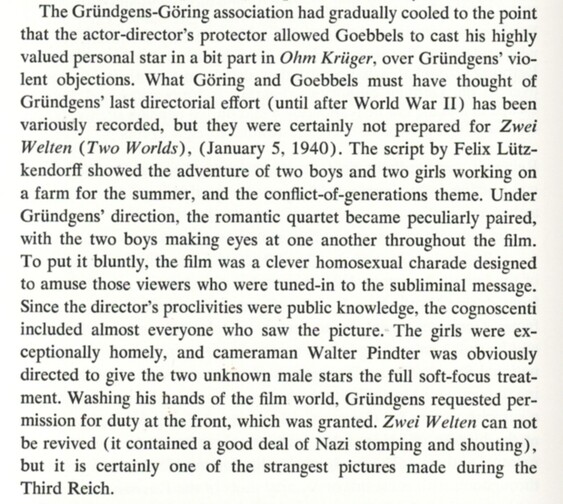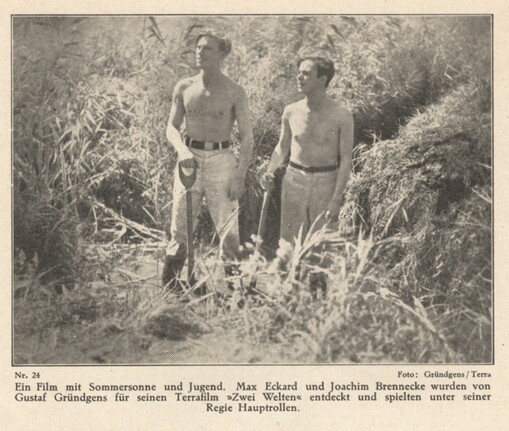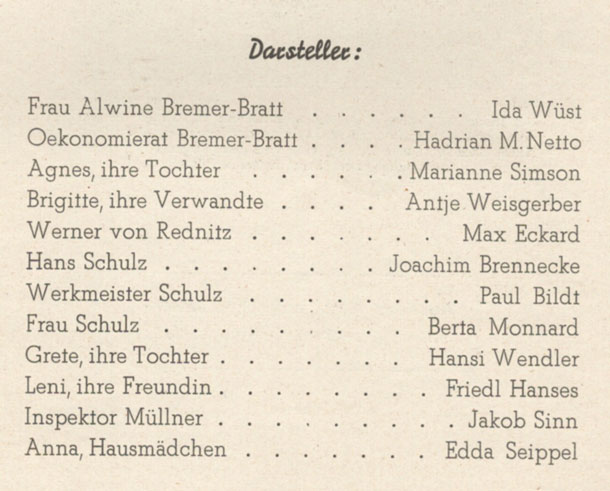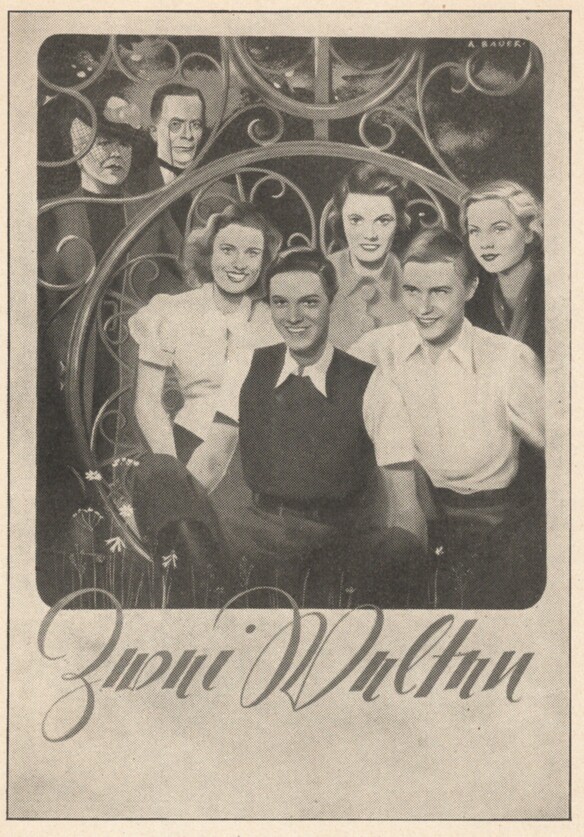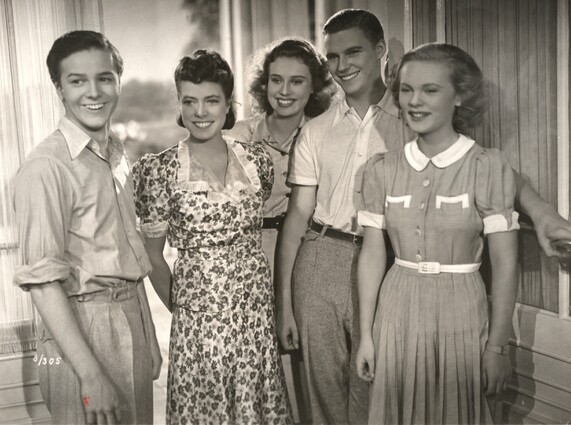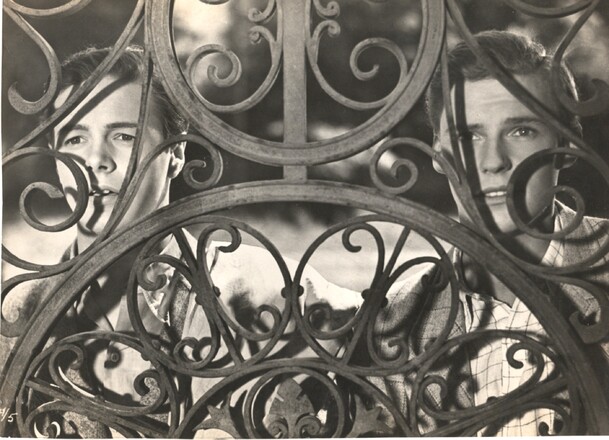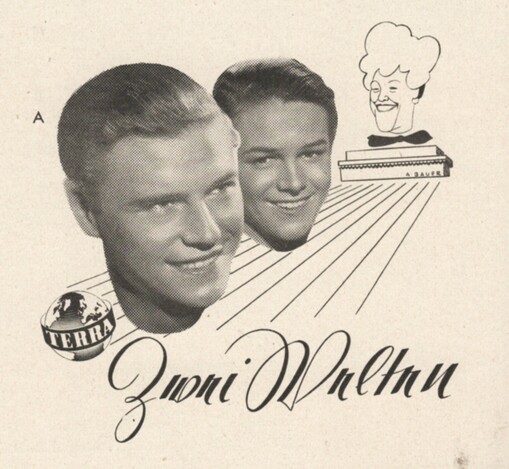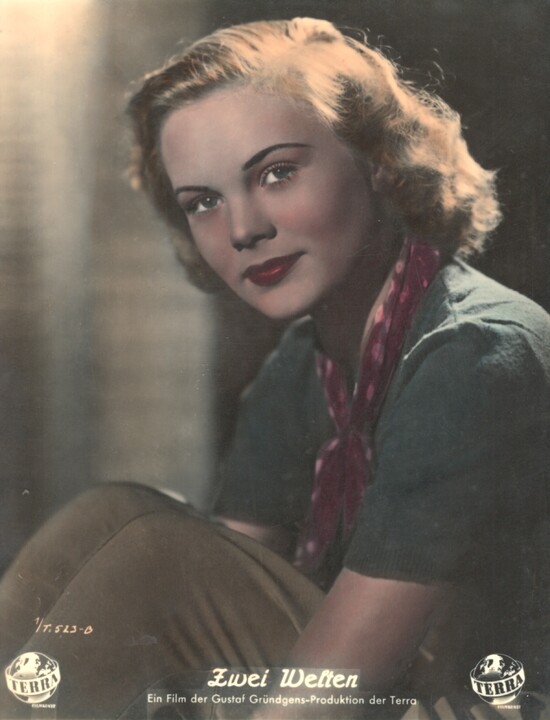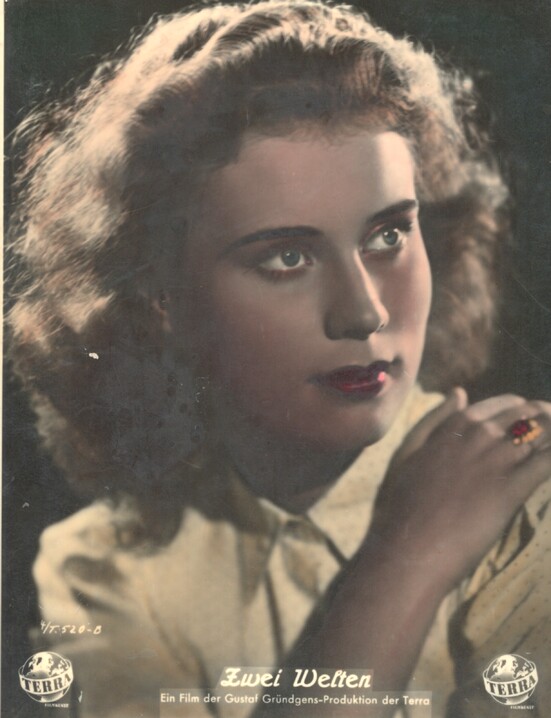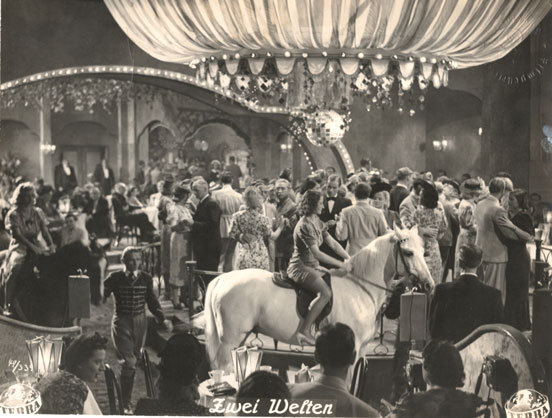- Home
- POSTER GALLERY
- ❗️BOOK & POSTER STORE❗️
- PURCHASE "HJ Quex" film ephemera HQ
- About the Posters
- The William Gillespie Collection
- Our Publishing House
- ❗️GFDN interviews author and collector William Gillespie ❗️
- Our most expensive & inexpensive finds!
- ❗️***NEW!**❗️POSTER OF THE MONTH - Blutzeugen / Raza
- ❗️NEW ❗️Film Posters – Demands on an important means of film advertising. ❗️
- In our Book + Zeitschrift Library
- ❗️ ***NEW!*** Hitler Youth Quex – A Guide for the English–speaking Reader ***NEW!*** ❗️
- ❗️***NEW!*** Table of Contents of our new HJ QUEX book❗️
- ❗️Hitler Youth Quex Guide - early praise! ❗️
- Recent loans from the Collection
- Farewell Horst Claus. (1940–2024 †)
- "Der Deutsche Film" Zeitschrift
- ❗️ ***NEW!***Reichsfilmkammer collection ❗️
- German "Tendency" Films (Tendenzfilme) in the Third Reich
- KARL RITTER
- Karl Ritter original film posers in this Collection
- "Besatzung Dora" ( † 1943)
- "The Making of The Crew of the Dora"
- Karl Ritter at the 1938 Reichsfilmkammer Congress
- INDEX -"Karl Ritter" book, 2nd edition
- Karl Ritter's Legion Condor (1939, unfinished)
- Excerpt from our "Dora" book
- ∆∆∆∆∆ High praise for our DORA book! ∆∆∆∆∆
- TABLE OF CONTENTS – "Legion Condor"
- § § § § § Early Praise for our LEGION CONDOR book! § § § § §
- ❗️"Das Leben geht weiter" and Karl Ritter ❗️
- Dateline: Ufa - April 11, 1945
- Zarah Leander Europe–wide !
- Japan Military Film and Karl Ritter
- Karl Ritter after 1945
- 1935 Film Congress
- Poster Exhibition in Berlin, March 1939
- Potsdam poster exhibition 12 April–25 August 2019
- Leni Riefenstahl's two "Olympia" Films (1938)
- "Ohm Krüger" (1941)
- Emil Jannings
- "Blutendes Deutschland" (1933)
- Hannes Stelzer ( † 1944)
- Klaus Detlef Sierck ( † 1944)
- Film stills
- Reich Film Censorship Offices
- ❗️***NEW!***The Fate of the German Film Industry in May 1945 ❗️
- Film censorship cards
- Film Archives
- Cinema advertising
- School filmstrips
- ❗️UPDATED❗️ Z F O / Ostland Film G-m-b-H
- Z F O / Herbert Jacobi estate
- ZFO / Ostland Film newspaper articles
- ❗️***NEW!*** Roter Nebel / Red Fog / Red Mist (1942/1943, ZFO) ❗️
- ZFO - Der Rückkehrer - The Returnee (1943/1944)
- The D F G production company
- D I F U
- ❗️ ***NEW!*** "Carl Peters" – Special Collection. ❗️
- "Alcazar" (1940, Genina)
- "Der 5. Juni" (1943, banned)
- Herbert Selpin and his "Titanic" (1943)
- Ein Robinson (1940, Fanck)
- "Fronttheater" (1942)
- Veit Harlan's Jud Süß and Fritz Hippler's Der Ewige Jude
- Harlan "Jud Süß" trial 1949
- Werner Krauss & JUD SÜß
- Anti-Semitic Film Posters in the Collection
- "Heimkehr" (1941)
- "Hitlerjunge Quex" (1933)
- ❗️***NEW!*** Hitlerjunge Quex in 111 Greater Berlin Cinemas ❗️
- Jürgen Ohlsen
- "S.A.Mann Brand" (1933)
- "In der roten Hölle" (Edgar Neville, 1939)
- "Helden in Spanien" (1938)
- The Spanish Civil War in Film
- Andrews Engelmann (1901 – 1992)
- Deutsche Wochenschau
- Uƒa Feldpost
- Uƒa Kulturfilm – Informationen
- " Die Tochter des Samurai" (1937, Fanck)
- Ufa 25th Anniversary
- Invitations to world premieres
- ❗️***NEW!*** Continental Films, Paris 1940–1944 ❗️
- Film Censorship in Occupied Paris 1942
- "Der Sieg des Glaubens" (1933)
- Wilhelm Althaus Estate
- Weimar Germany posters
- Ufa and the Ordensburgen
- The Gaufilmstelle in our Collection
- "Zwei Welten" (1940)
- "Capriccio" (1938) –Karl Ritter film album
- Unrealised NS Propaganda Films 1934–1945
- German Film Directors accused of "war crimes"
- Australian––themed NS feature films
- "Der Störenfried" / "The Troublemaker"
- What was new in 2014?
- What was new in 2015?
- What was new in 2016?
- What was new in 2017?
- What was new in 2018?
- What was new in 2019?
- What was new in 2020?
- What was new in 2021?
- What was new in 2022?
- What was new in 2023 ?
- What's new in 2024?
- ❗️***NEW!*** Hitler assassination attempt in Karl Ritter film cut❗️
- BESATZUNG DORA private photos
- Just discovered 1942 article on BESATZUNG DORA
- The Karl Ritter Tetralogy
- Google Analytics 2023
- Our first–ever acquisition!
- ❤️"Some of our favourite things....!"❤️
- ERRATUM for our " Hitler Youth Quex Guide"
- Trending
- Vale †
- Our Wants List / 2024 / Wunschliste
- Pop Quiz
- Unsere KARL RITTER Bücher in Deutschland liefbar!
- WHERE to buy our books right now?
- ✉️Contact
 “History is not about the facts. It is about the context and who is telling the story.” —Prof. Milton Fine.
“History is not about the facts. It is about the context and who is telling the story.” —Prof. Milton Fine.
"Who controls the past controls the future: who controls the present controls the past." –– George Orwell in his novel "1984."
"Whoever doubts the exclusive guilt of Germany for the Second World War destroys the foundation of post–war politics." –– Prof. Theodor Eschenberg, Rector, the University of Tübingen.
"If we have our own why in life, we shall get along with almost any how." – Friedrich Nietzsche
POSTER GALLERY --view
over 500 German film
original posters between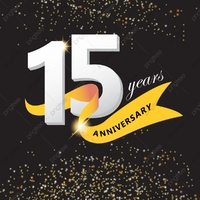
1927–1954 from
Germany and from
many Axis and Neutral countries
across Europe!
Note! Posters in the Poster Gallery are PERMANENT
acquisitions which are NOT FOR SALE!! ONLY the
posters listed in our POSTER STORE are for sale.
(They have a price and order button to use.)
Gustaf Gründgens' Zwei Welten (1940)
–– "one of the strangest pictures made during the Third Reich" ?
(David Stewart Hull, FILM IN THE THIRD REICH, Univ. of Cal. Press, 1969)
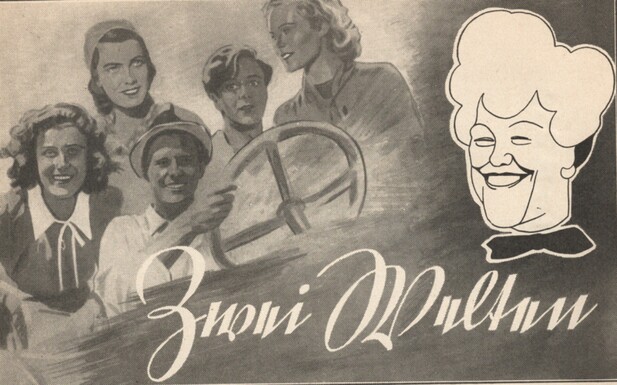
Gustaf Gründgens, the famous and gifted stage and film actor, who became well–known worldwide after his role in the early sound Fritz Lang film M, acted in and also directed dozens of plays in the Weimar and Third Reich years, appeared in motion pictures, and enjoyed a post–WWII touring career. His role as Faust both on stage and on film was particularly celebrated.
He was Director of only one film, Zwei Welten / Two Worlds, for which he discovered and cast four unknown young actors and actresses from theatre in their screen debuts; and pitted them against well-established middle-aged film stars playing the stuffy and old–fashioned Bremer-Bratt aunt and uncle of one of the boys.
The film script was written by Felix Lützkendorf, who had authored many films, including a number of propaganda films as Karl Ritter’s co–author (for example: Kadetten, Stukas, Über alles in der Welt, Besatzung Dora, Legion Condor). Lützkendorf was a National Socialist, a True Believer, and held the rank of Unteroffizier in the SS.
Herbert Holba, in his 1978 monograph on Gründgens, states that
“ Karl Ritter, for example, would have derived a specific Nazi propaganda film from this [script.]. For Gründgens, who only wanted to follow Lützkendorf's instructions to a limited extent, it served as a sublimation of his homoerotic inclinations. “
Below: Gründgens on the set of Zwei Welten.
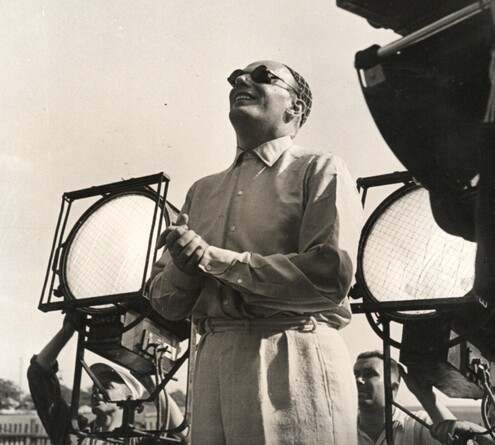
Holba continues:
“ Two boys, a worker boy from Berlin and a young baron, report for the harvest service. (Landesdienst der HJ). They are assigned to a manor belonging to relatives of the baron who, however, do not know him personally. In order to play a prank on his family, he takes on the role of the worker boy - who is decried as an oaf - and lets his friend act as a "nobleman". The opportunity for numerous mix-ups and errors is given and is subsequently also widely exploited. The female flora present, pretty girls with restrained charm, gradually participate in the humorous game and helps the boys to win over old–fashioned ways of thinking."
Holba continues:
"Although the original intention of playing the old with the new was retained, the way in which Gründgens worked it out on film turned into a bizarre paraphrase about the interchangeability of terms, actions and roles. The tense relationship with the aunt, who tried to tyrannise the male world, offers enough material to get the boys into situations in which they have to successfully defend themselves against attacks by the principle female. They defend their alliance of men with relish and demonstrate several times that they can do without the female gender. They even bring the timid uncle, who has to suffer under the knuckle of his ruler, to the point that he reconsiders his masculine strength and, together with the boy, brings the primordial woman to reason. “
Holba comments on the two young male actors:
“ Max Eckard and Joachim Brennecke, both main role characters, develop under Gründgens’ guidance as a perfect match. “
Holba addresses the ways in which Gründgens fashioned his film away from being a true propaganda piece or a Hitler Youth film:
“ The Nazi rituals, which were quickly dropped, the banding about of ideological phrases, which are immediately replaced by hearty jokes, as well as the ironic treatment of typical Belief-and-Beauty (“Glaube-und-Schönheit”) symbols, defuse the ideological tendency and make it untrustworthy.
Overlaying HJ phraseologies and BDM indulgence with an aesthetic cat-and-mouse game between two youngsters who move like narcissi in love with themselves is almost self-evident. “
A film review of Zwei Welten some months after the premiere reflected:
"The two boys, Max Eckard and Joachim Brennecke, develop a freshness in the process and an acting daredevil of conditional superiority compared to the somewhat slightly biased performances of the young actresses. " (Film Illustrierte magazine, September 1940).
In the Catalogue of Forbidden German Feature and Short Film Productions, dating from 1951, and published in conjunction the Imperial War Museum, a short synopsis of the film states:
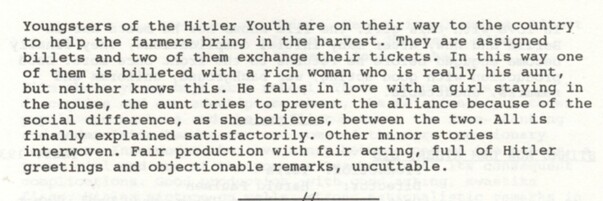
Post–war film historians have been far less kind, to say the least. Frenchmen Courtade and Caders in their 1972 Histoire du Cinema nazi simply said about Gründgens film, that it “added nothing to his glory”.
Film historian David Hull in his 1969 work Film in the Third Reich, wrote:
